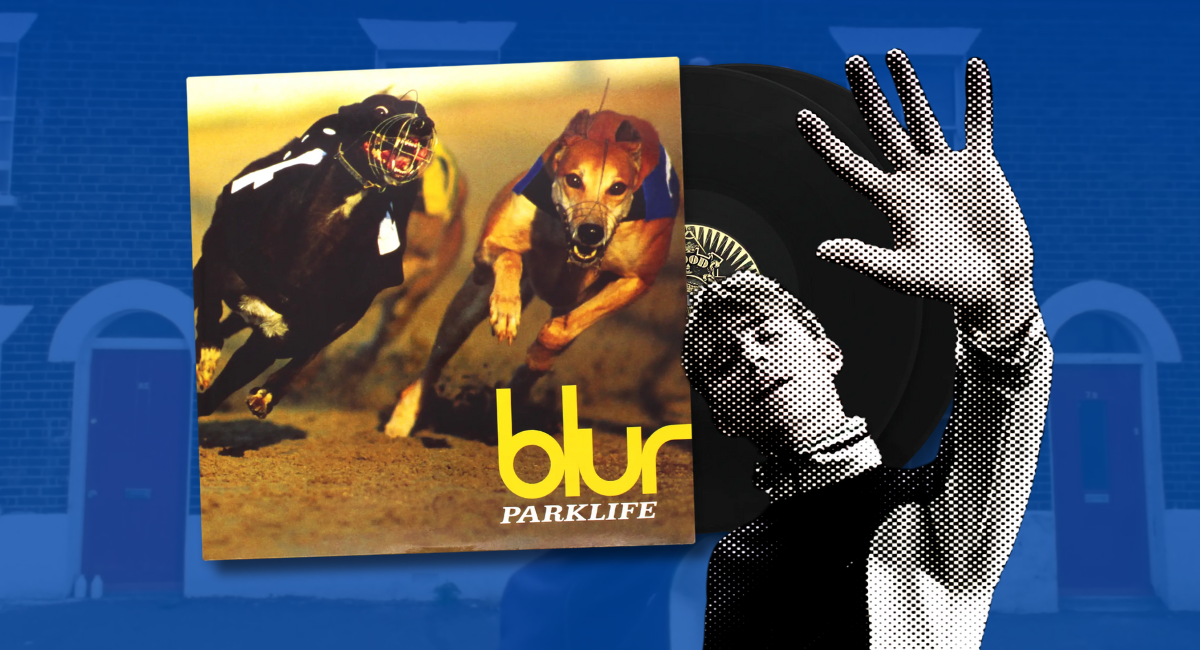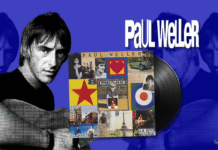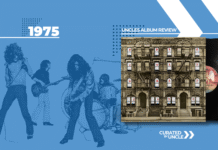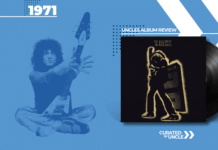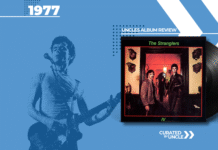Parklife (1994): The Soundtrack of a Generation or Just Another Day in the Park?
In April 1994, Britain was in the middle of a midlife crisis. John Major was still Prime Minister, people genuinely thought fax machines were the future and Oasis hadn’t yet weaponised nasal vocals. Into this cultural vacuum swaggered Blur with Parklife, the album that simultaneously defined and took the piss out of Britpop. It’s not so much a collection of songs as it is a sonic sitcom, narrated by a bemused narrator trapped in a never-ending episode of Coronation Street.
It’s both a celebration and condemnation of British life, like a warm pint that’s gone slightly off but you drink it anyway because, well, you’re British and that’s what one does. Blur doesn’t offer answers – they don’t even offer comfort. What they offer is a 16-track therapy session set to music that makes you question your commute, your neighbours and your choice to eat a Tesco meal deal five times a week.
So let’s dissect Parklife like it’s a GCSE English Lit assignment.
Table of Contents
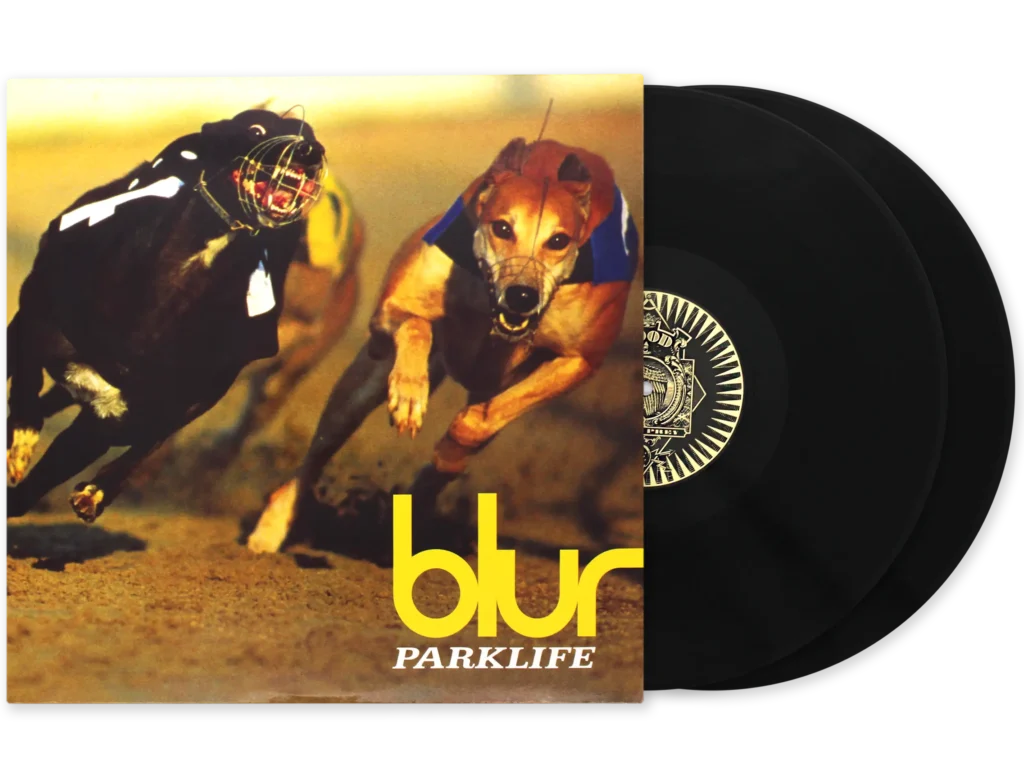
Context: The Britpop Wars and Class Tourism
The early 1990s saw a cultural void, grunge was on the way out, Thatcher had already gone and Tony Blair hadn’t yet reinvented beige as a political platform. Blur’s previous album Modern Life Is Rubbish set the stage, but it was Parklife that lit the Union Jack on fire and danced around it wearing Doc Martens.
While Oasis grunted about cigarettes and alcohol like your mate who peaked in Year 11, Blur took a more arch, ironic approach to British life. Parklife was their anthropological expedition into class, culture and the creeping absurdity of urban existence. It’s both David Attenborough and Alan Partridge in audio form
Track-by-Track Breakdown
1. Girls & Boys
The album kicks off with a synth-soaked, disco-drenched satire on continental shagging. It’s infectious, grotesque and sounds like what would happen if a sleazy Ibiza club got a recording contract. Damon Albarn delivers lines about sexuality and hedonism with the glee of someone watching a hen party implode at 3 a.m. in Magaluf.
2. Tracy Jacks
Meet Tracy Jacks: middle-aged, middle-class and in the middle of a breakdown. He bulldozes his house in protest of suburban mundanity. It’s funny, it’s sad and it hits a little too close to home if you’ve ever shouted at a printer.
3. End of a Century
A musical sigh. Blur distill modern life into lukewarm relationships and routine sex while making it sound strangely beautiful. The lyrics are observational misery at its finest. “We wear the same clothes ’cause we feel the same” – if that line doesn’t make you want to throw your Primark jumper into the sea, I don’t know what will.
4. Parklife
The title track. The national anthem of ironic patriotism. Phil Daniels of Quadrophenia fame narrates the daily absurdities of working-class Britain like an EastEnders Greek chorus. It’s jaunty, it’s quotable and it’s just cynical enough to let you feel clever for liking it.
5. Bank Holiday
A chaotic, punk-thrash blur (pun intended) of vomiting, drinking and disillusionment. It’s the aural equivalent of waking up with kebab meat on your pillow. Clocking in under two minutes, it’s like being mugged by a drunk pigeon.
6. Badhead
After the migraine that is Bank Holiday, Badhead arrives with a hungover whisper. It’s melancholic Britpop at its most understated. The melody is lovely, the lyrics are quietly devastating and it’s all very British in its refusal to be too emotional about anything.
7. The Debt Collector
An instrumental interlude that sounds like a Victorian circus decided to unionise. It’s fun, slightly unnerving and serves no purpose except to confuse Americans.
8. Far Out
Bassist Alex James takes vocal duties here. It’s a trippy ode to astronomy that sounds like Brian Cox had a mental breakdown inside a lava lamp. A palette cleanser, if your palate is into cosmic nonsense.
9. To the End
French vocals, sweeping strings and romantic fatalism – Blur’s attempt at continental elegance. It’s genuinely lovely and feels like the kind of song you’d listen to while staring wistfully out of a rainy train window, pretending your life is a French film.
10. London Loves
This one slithers along with synths and sarcasm. It’s a bleak postcard from the capital: “London loves the mystery of a speeding car.” Damon Albarn delivers each line like he’s reading the Tube announcements with a loaded revolver just out of frame.
11. Trouble in the Message Centre
Full of miscommunication, paranoia and weird bleeps, this song is what happens when you cross The X-Files with a broken pager. It’s not the catchiest, but it’s dripping with anxious charm.
12. Clover Over Dover
A lush, brooding track about contemplating suicide at a national landmark. Only Blur could turn Dover’s white cliffs into a metaphor for post-Eton disillusionment. It’s beautiful, haunting and absolutely not one to play at weddings.
13. Magic America
A bouncy tune about the seductive hellscape that is American consumerism. Picture Disneyland on acid, narrated by a man who’s just had a nervous breakdown in a Walmart. “He went to live in America, he gave up sex and drugs and violence” – the irony is so thick you could carve it.
14. Jubilee
A punk-infused rant about a teenage yob. It’s a mess, in a good way. A musical temper tantrum with guitar stabs and sarcastic sneers. If a Burberry cap could play guitar, it would sound like this.
15. This Is a Low
The album’s emotional and musical climax. Inspired by the shipping forecast, it’s a melancholic masterpiece. Blur manages to make weather reports sound poetic and heartbreaking. This is the sound of Britain, in all its soggy, wistful glory.
16. Lot 105
And then they end it all with a cabaret jingle. Why? Because Blur can’t help themselves. It’s bizarre, irreverent and completely unnecessary. Just like Britain.

The Making of Parklife: Pint-Sized Pseudonyms and Synths
Recorded at Maison Rouge and Townhouse Studios, Parklife saw producer Stephen Street help Blur sharpen their knives, musically and thematically. Damon Albarn, freshly obsessed with the minutiae of British life, became a lyrical magpie, plucking everything from soap operas to seaside towns.
Alex James played the role of the smug bassist-slash-cheesemaker. Graham Coxon, eternally underrated, poured his fretboard anxiety into every guitar line. Dave Rowntree held it all together with drumming that said, “Yes, I’ve seen things.”
The Sound of Controlled Chaos
Parklife isn’t just a record – it’s an entire sonic playground held together by passive aggression and perfectly tailored Fred Perry shirts. Stephen Street’s production is tight but allows Blur to run wild, shifting between musical styles like a bored teen changing channels on a CRT television.
You get glam, punk, synth-pop, orchestral flourishes and even a cabaret outro for no sensible reason whatsoever. One minute it’s a pub brawl, the next it’s a stroll through Regent’s Park narrated by an ex-Mod. And through it all, Graham Coxon’s guitar snakes in and out, twitchy and brilliant, as if he’s playing a completely different album and somehow making it better.
Damon Albarn: Narrator of the National Breakdown
Albarn isn’t so much singing on Parklife as he is delivering monologues with the smug, knowing smirk of someone who’s just nicked your wallet and left you a note explaining why you deserved it. His voice moves from crooner to cockney geezer to detached observer of suburban rot.
Lyrically, he’s at his peak – skewering everyday life with lines that sound like they’ve been stolen from a particularly bitter train conductor. Whether he’s chronicling existential crises in commuter towns or romanticising meteorological despair, Albarn does it with a poet’s flair and a piss-taker’s timing. Whether he’s playing the role of the bewildered commuter, the wistful lover, or the cynic in a cagoule, he nails the emotional tone with unnerving accuracy.
He’s the bloke you hear in the pub corner ranting about how “the bins haven’t been collected in six weeks” but who, if you actually listen, might be offering profound truths about urban despair and the slow erosion of joy.
Graham Coxon: The Unsung Lunatic
If Albarn is the voice of the album, Coxon is its twitching, unpredictable heartbeat. His guitar work on Parklife is the sound of a man wrestling with both his instrument and possibly his inner demons. It lurches, jitters and shreds through the pristine pop surface like a Stanley knife through wallpaper.
Take “This Is a Low” – Coxon’s playing moves from melancholic to transcendent, elevating weather reports into heartbreak anthems. Or “Jubilee,” where he sounds like he’s strangling the strings just for the hell of it. He’s not just adding texture, he’s adding subtext, sarcasm and sometimes outright sabotage.
Rhythm Section: Holding the Mayhem Together
Alex James, when not moonlighting as a cheese evangelist, delivers basslines that are deceptively clever – understated yet anchoring the chaos. He’s the bloke at the party quietly keeping count of everyone’s drinks. Alex James recently wrote a book about the blur reunion in 2023 we have an article about it HERE if you want to check that out later.
And then there’s Dave Rowntree. He doesn’t just keep time – he keeps order. Whether it’s the manic thrashing of “Bank Holiday” or the funereal plod of “End of a Century,” he’s the metronome of British malaise. Rowntree is the musical equivalent of the Tube: occasionally late, but always turning up eventually and getting you somewhere bleak
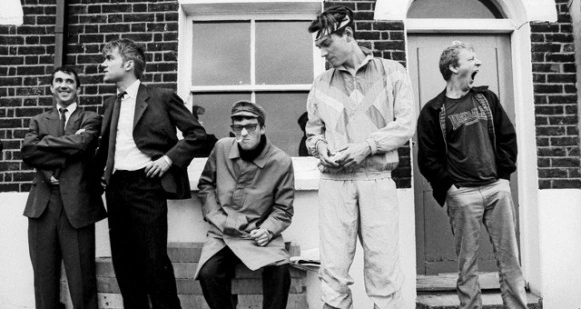
It’s Not Just Britpop, It’s Satirecore
Yes, Parklife was Britpop’s commercial coming-of-age moment. But underneath the catchy melodies and wry lyrics is something darker: a sneering, satirical thread that cuts through the Union Jack bunting. This isn’t the wide-eyed nostalgia of 1960s revivalism – it’s more like Alan Bennett meets acid house.
Blur doesn’t romanticise Britain – they report on it, like disillusioned journalists embedded in a nation’s nervous breakdown. “Magic America” is what happens when British idealism collides with American capitalism in a motorway pile-up. “Clover Over Dover” isn’t about hope – it’s about standing at the edge of the country (and your sanity) wondering if either is worth saving.
Parklife vs. Real Life
Revisiting Parklife in a post-Brexit, post-truth, post-anything-fun era only sharpens its edges. What once sounded like witty observations now feel like warning signs ignored. The parody became prophecy. Back then, Parklife mocked the grey routine of daily life, now it sounds like a documentary. A world of spam emails, overpriced train fares, passive-aggressive neighbours and existential angst, all dressed up in la-la-las and synths.
If anything, Blur were optimists, they assumed someone was paying attention. Sorry, lads.
Did You Know? Parklife Trivia You Didn’t Ask For
- Phil Daniels was paid in beer. No, seriously. The Quadrophenia actor who narrated the title track was compensated with a crate of lager. Possibly the most British payment method since “cheque for two pints and a Scotch egg.”
- The album almost had a very different name. Early working titles included London and Soft Porn. Blur eventually settled on Parklife – because nothing says cultural disillusionment like a dead-eyed jog around your local green space.
- Blur had to fight their label to include “To the End.” The record execs thought the orchestral melancholy wasn’t “commercial enough.” Blur said, “Hold our melancholic French ballad.”
- “Far Out” is basically Alex James on mushrooms. Okay, not officially, but it was inspired by his obsession with space and cosmology. Either that, or he dropped acid while watching The Sky at Night.
- “This Is a Low” is based on an actual shipping forecast. Damon Albarn had a tea towel printed with the BBC Shipping Forecast regions. Because of course he did.
- Parklife beat Oasis to the Britpop punch. While Oasis were still tuning Liam’s nasal whine, Blur had already gone full art-school piss-take. The result? A class war disguised as a chart battle and more NME covers than Noel Gallagher has guitars.
My Final Thoughts: Genius in a Tracksuit
Blur’s Parklife is both a loving tribute and a brutal takedown of British life. It’s clever without being smug (well, mostly), emotional without being weepy, and political without making you want to eat quinoa.
It’s as if someone threw The Kinks, Bowie and Monty Python into a blender, added a splash of class anxiety and pressed ‘British Purée.’ It might not be perfect – there are dips and indulgences – but even its flaws are charming in the way your drunk Dad is charming after his third shandy at a family BBQ.
And that’s what makes it enduring. Parklife doesn’t ask to be taken seriously, it just makes you realise how ridiculous everything already is
In the end, Parklife isn’t just an album – it’s a diagnosis. A musical biopsy of a country perpetually unsure if it’s winning or losing, laughing or crying. It’s loud, weird, funny, sad, catchy and yes, annoyingly British.
If you’ve ever queued quietly, apologised to someone who stepped on your foot, or seriously debated whether to put beans on toast or just cry in the shower – Parklife gets you.
Listen to it again. And then maybe go bulldoze your house. Tracy Jacks would be proud.

If You Like Parklife, I Recommend These Albums:
- Pulp – Different Class (1995): Like Parklife if it had more sex, more anger, and wore better trousers.
- Suede – Dog Man Star (1994): Britpop’s goth cousin who writes poetry in the rain.
- Elastica – Elastica (1995): Half an hour of post-punk snark with a nicotine aftertaste.

Parklife
| # | Track | Duration |
|---|---|---|
| 1 |
Girls & Boys - 2012 Remaster
Blur
|
04:51 |
| 2 |
Tracy Jacks - 2012 Remaster
Blur
|
04:19 |
| 3 |
End of a Century - 2012 Remaster
Blur
|
02:45 |
| 4 |
Parklife - 2012 Remaster
Blur
|
03:05 |
| 5 |
Bank Holiday - 2012 Remaster
Blur
|
01:42 |
| 6 |
Badhead - 2012 Remaster
Blur
|
03:25 |
| 7 |
The Debt Collector - 2012 Remaster
Blur
|
02:10 |
| 8 |
Far Out - 2012 Remaster
Blur
|
01:37 |
| 9 |
To the End - 2012 Remaster
Blur
|
04:04 |
| 10 |
London Loves - 2012 Remaster
Blur
|
04:15 |
| 11 |
Trouble in the Message Centre - 2012 Remaster
Blur
|
04:09 |
| 12 |
Clover Over Dover - 2012 Remaster
Blur
|
03:22 |
| 13 |
Magic America - 2012 Remaster
Blur
|
03:37 |
| 14 |
Jubilee - 2012 Remaster
Blur
|
02:47 |
| 15 |
This Is a Low - 2012 Remaster
Blur
|
05:16 |
| 16 |
Lot 105 - 2012 Remaster
Blur
|
01:19 |



